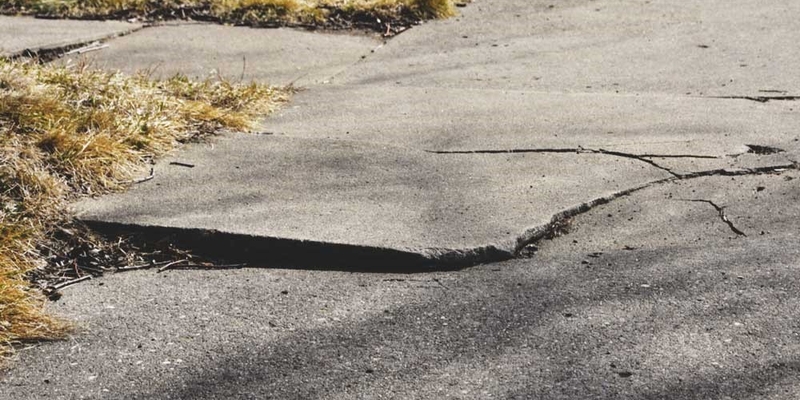
If you are not redirected within 30 seconds, please click here to continue.
Samedi: 10h – 16h HAE

If you are not redirected within 30 seconds, please click here to continue.
If you are not redirected within 30 seconds, please click here to continue.
Slips and falls on your property: what happens when you don't have insurance?

We’re all familiar with the adage that “accidents happen,” and that’s especially true when it comes to slips and falls in and around the home.
According to a report by CTV News, each year, thousands of Canadians are hurt after slipping on icy stairs, steps, and sidewalks alone. That doesn’t even account for slips and falls caused by broken or missing handrails, debris, and inadequate lighting.
If a guest injures themselves after a slip or fall in your home or apartment and decides to sue you, what recourse do you have if you aren’t insured?
Your legal liability regarding slips and falls at your home
According to the Insurance Bureau of Canada (IBC), you may be held liable for slips, trips and falls if you don’t provide a reasonable standard of care in keeping your property free from hazards.
A homeowner is responsible for managing common risks, including snow clearing, unexpected elevation changes, slippery surfaces, handrails, debris, and lighting.
And it isn’t just homeowners who are on the hook — even as a renter, you can share liability with your landlord. IBC says that the best way to avoid liability for a slip and fall is to prevent accidents from happening in the first place by keeping the property free of hazards with regular maintenance.
How liability works if you don’t have home or tenant insurance
“If you do not have insurance and are found to be legally liable for the bodily injury to a third party, you will be responsible (as determined by the court) to pay out the damages to the individual who is suing you,” explains Matthew Johnson, customer care manager at Sonnet Insurance.
Depending on the severity of the injury, these costs can be upward of $1 million, which is why most insurance providers offer liability coverage of $1 million or $2 million.
Slips and falls in the home can happen to anyone and be financially disastrous should the other party decide to sue. Your best bet to protect yourself from such a situation is to have homeowner or renters insurance should someone injure themselves at your home.
Avoid liability with a home or tenant insurance policy
A home insurance or tenant insurance policy is your best protection in the event someone gets injured on your property and decides to sue you. The liability portion of your policy would help cover this sort of claim.
“Liability will be included in any personal property policy (homeowner, landlord, condo, tenant),” says Johnson. “However, it is still important to ensure that this coverage is included in your specific policy.”
Johnson says the liability section of your insurance policy is very important, as the costs for liability claims can be “astronomical” depending on the circumstances.
“Something as simple as not salting or shovelling your driveway can end up costing you millions in damages,” he explains. “You would be responsible for medical costs, any additional expenses incurred, rehabilitation, loss of income, etc.”
How does your home insurance respond to a lawsuit?
For any slips and falls in the home, says Johnson, you would first need to be determined legally liable for the damages to the third party for your insurance policy to respond. He says this means that the third party would have to sue you and be successful for your policy to respond.
“Any time a situation like this occurs, contact your insurance provider immediately as there may be clauses for representation in your policy or contract.”
Johnson adds that not only does your third-party legal liability section cover you for bodily injury, it also covers you for property damage that you negligently caused and for which you are legally responsible. In addition, some policies include a section for voluntary medical payment, which allows you to voluntarily cover the costs for someone injured on your premises, even if you’re found not to be negligent or liable. Talk to your insurance provider or refer to your policy wording to see if you have this coverage.
There's one important caveat to third-party liability coverage, and it comes into play if you yourself are injured on your own property.
“Personal liability covers the insured for costs if they are held legally liable for causing property damage or bodily injury to a third party,” explains Johnson. “If the insured person is the one that is injured, there are no payments that would be made from the policy.”
Don't waste time calling around for home insurance
Use RATESDOTCA to shop around and compare multiple quotes at the same time.
Finding the best home insurance coverage has never been so easy!
Get money-saving tips in your inbox.
Stay on top of personal finance tips from our money experts!










